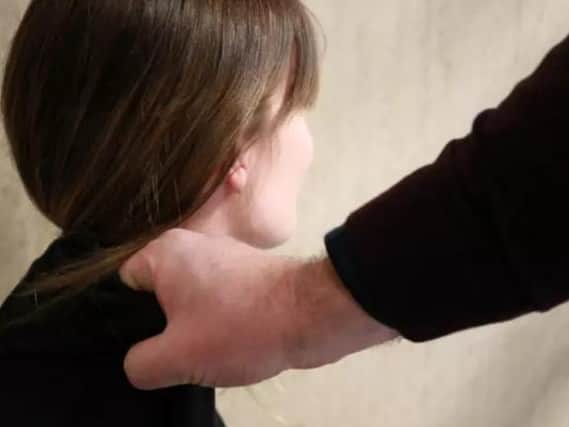Abused children in Yorkshire 'invisible' amid drop in care referrals during first lockdown


Figures from 12 local authorities in Yorkshire and North Lincolnshire, though not all, show that referrals of children into care between March and June went from 875 in 2019 to 810 this year, when the first lockdown was happening.
Experts say this is because schools were closed, meaning that there were less safeguarding protections for young people.
Advertisement
Hide AdAdvertisement
Hide AdIryna Pona, policy manager at The Children’s Society, said: “During the first lockdown, when schools were closed, vulnerable children were out of sight of teachers, social workers and other professionals who would often be the ones to spot the signs a child may be at risk.
"It is therefore unsurprising that overall referral levels across Yorkshire and Lincolnshire were down during this time.
"Sadly, with the second lockdown and many children still not back in education, referrals may continue to stay lower and too many young people will remain invisible, unrecognised and unsupported.
“We know many have faced difficult times, unable to escape issues at home such as abuse, neglect and the increased stress of living in a family experiencing financial worries, addiction, mental health illness and more.
Advertisement
Hide AdAdvertisement
Hide Ad"That is why it is more important than ever that local services work extra hard to identify vulnerable children. Local authorities should make sure that each vulnerable child has regular contact with a professional they trust.
She added that The Children's Society wants the Government to invest in children’s services after funding has dropped by £2.2bn in the last decade.
Twelve Yorkshire and North Lincolnshire councils responded to The Yorkshire Post's Freedom of Information requests - though not North Yorkshire - with only York, Kirklees and Wakefield authorities reporting an increase in referrals (the former showing the highest number for five years).
Meanwhile, Doncaster, Calderdale, North East Lincolnshire, North Lincolnshire, Leeds, Rotherham, Bradford, Sheffield and Barnsley each reported a drop.
Advertisement
Hide AdAdvertisement
Hide AdRotherham went from 82 to 60, the lowest number of referrals it has had in five years.
The New Statesman magazine last week reported that figures collected by the Department for Education (DfE) showed a drop in the number of social care referrals during the first national lockdown in England, adding that overall this year figures have reduced 11 per cent compared with the three previous years.
Children's social care referrals fell by up to 30 per cent during the first lockdown, it said.
The political magazine reported that despite schools opening again in September, referrals are still below the three-year average, though August saw increases above the usual level.
Advertisement
Hide AdAdvertisement
Hide AdOfsted found that while a post-lockdown spike in demand has not occurred as was expected, reported the magazine, many councils said they were expecting an increase in the medium to long term.
Andrew Fellowes, NSPCC public affairs manager told The Yorkshire Post: “We know from the increased contacts to the NSPCC helpline and Childline during lockdown that the pandemic put lots of families under intense pressure and too many children continued to live with the risk of serious harm.
“Now children are back at school - many of whom may have struggled with abuse, neglect and mental health problems - it’s crucial Government makes sure staff are equipped to recognise and respond sensitively to their needs.
“But schools can’t do this alone, its vital that children are able to get the help they need from local authority, NHS and charities."
Advertisement
Hide AdAdvertisement
Hide Ad"This system was struggling even before the pandemic and now it’s imperative that the Government delivers investment in early intervention and recovery services or they risk a generation of children remaining as the hidden victims of this pandemic.”
The Local Government Association in September said that children referred to social care services for support fell by nearly a fifth during the height of the lockdown.
At the time, a Government spokesman said: “The safety and wellbeing of the most vulnerable children remains a priority.
“That’s why, throughout the pandemic, schools, nurseries and colleges remained open to them and it is now a national priority to get all children back into the classroom full-time – because it is the best place for them to be.
Advertisement
Hide AdAdvertisement
Hide Ad“Despite the challenges, the availability of social workers remains stable. We are also placing social workers into hundreds more schools to help teachers spot the signs of abuse or neglect more quickly.
“We’re giving councils unprecedented support during the pandemic to tackle the pressures they have told us they’re facing, including more than £3.7 billion which has been made available to help them meet additional demands – including within children’s social care services.”
Comment Guidelines
National World encourages reader discussion on our stories. User feedback, insights and back-and-forth exchanges add a rich layer of context to reporting. Please review our Community Guidelines before commenting.